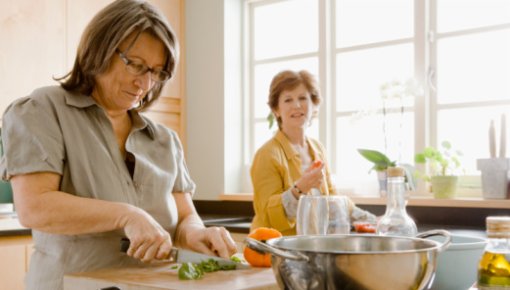I thought my life would be over
The cancer came back two years later. At that time, many things changed in my personal life, too: My son moved out, the house was too big for me, and I was no longer fit enough to work full-time, so I reduced my working hours. All this put a lot of strain on me.
In the first operation, quite a few lymph nodes were removed from my armpits. This makes my arms hurt time and again. Then I had a second operation, where one of my breasts was removed, and I coped quite well with that.
The following January I went to a follow-up examination. The gynecologist did an ultrasound of my abdomen, and she saw something she didn’t like and sent me to have an MRI scan. At first, the doctor who did the MRI told me that they couldn’t see anything worth worrying about.
At my next appointment, my gynecologist told me that I had metastases in my pelvis. I was flabbergasted. I hadn’t felt a thing! I had only had some symptoms in my shoulder, and my orthopedist said that they were caused by a jammed tendon. Again, many tests were done and the news got worse and worse: metastases in my pelvis, my spine, my chest wall, my shoulder. I felt paralyzed. I asked the doctor whether there was anything at all she could still do for me. I thought I would need a wheelchair, and that my life would be over then. The doctor smiled at me and said: “We can get this situation back under control.”

